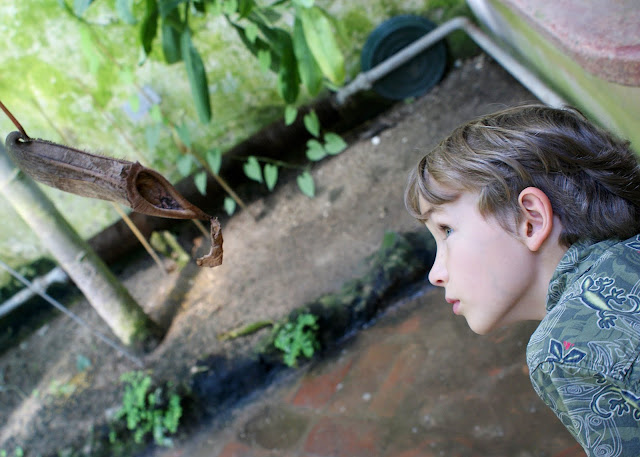Every Summer, since our arrival in Italy, my neighbor asks if I would like her help making "salsa." Salsa in this case means tomato sauce. Each year I am overjoyed that she helps me with such an undertaking. This year we started with 4 crates of tomatoes. I grow tomatoes in my garden, but I don't have the volume or variety she likes to use for sauce. So this year, like every other year, her husband purchased suitable tomatoes at a local market for the "salsa."
The process begins early in the morning, before it is too hot outside, with washing the tomatoes. Once all the little red jewels are clean, they are sliced in halves or quarters.
Next, the tomatoes are put into larges pots with a cup or two of water and a teaspoon or so of salt. The pots are placed on the stove and cooked until they have boiled for a few minutes (3 to5). The tomatoes must be stirred often to prevent any from sticking to the bottom of the pan and scorching.
After they have boiled for a few minutes, the liquid is drained off of the tomatoes.
The set up for turning the tomatoes to sauce requires a contraption for removing peels and seeds, a bowl to catch the peels and seeds, a bowl to catch the sauce, and a "C" clamp to hold it all down. The boiled tomatoes are cranked through on the first run, and then the peels and seeds are run through a second time to remove any of the lingering juicy pulp. A little sprinkling of sugar can be added at this point, though my mother insists this is not a good idea. 
Next, the sauce is put into the jars using a funnel, or "imbuto" in Italiano. I used mostly 250ml jars, with a few pint jars. A pint is just a little smaller than 250ml.
Next, the tops are covered in thin plastic. I inquired about the reason for this step, and was told to do it because that is the way she was taught to do it. A word of caution on this step...one year I used American plastic wrap, which was apparently too thick, and ended up with all of the jars coming unsealed around December and all of the remaining sauce rotting....sad, sad, sad...very sad year. Last year I refused to do this step and everything turned out fine, this year my arm was twisted into doing it again...this time with Italian plastic wrap.
After the lids are screwed very tightly onto the jars the jars are placed upside down, just to make sure nothing seeps out. Then the jars are placed into very large pots with about 1 inch of water covering the lids. A lid is placed on top of the pot, the fire is turned up as high as it will go, and you wait, and wait, and wait for the water to boil, trying to keep in mind that "a watched pot never boils." After the water has reached a boil, set the timer for 30 minutes. When the jars have boiled for 30 minutes the pot is removed from the stove and sits overnight.
The next day the jars are removed from the water. The water is used to water flowers, and the jars are arranged in a precarious tower for photos. 45 jars are featured in this picture. Check each jar to make sure the lid is sealed. A sealed lid will not "click" when center is pressed down. If any of the jars did not seal they can be placed in the refrigerator and used sooner rather than later.
After the tower has been disassembled and the jars are tucked safely away, a photo editing program may be used to create super-punny pictures like...the Leaning Tower of Pomodoro.









































